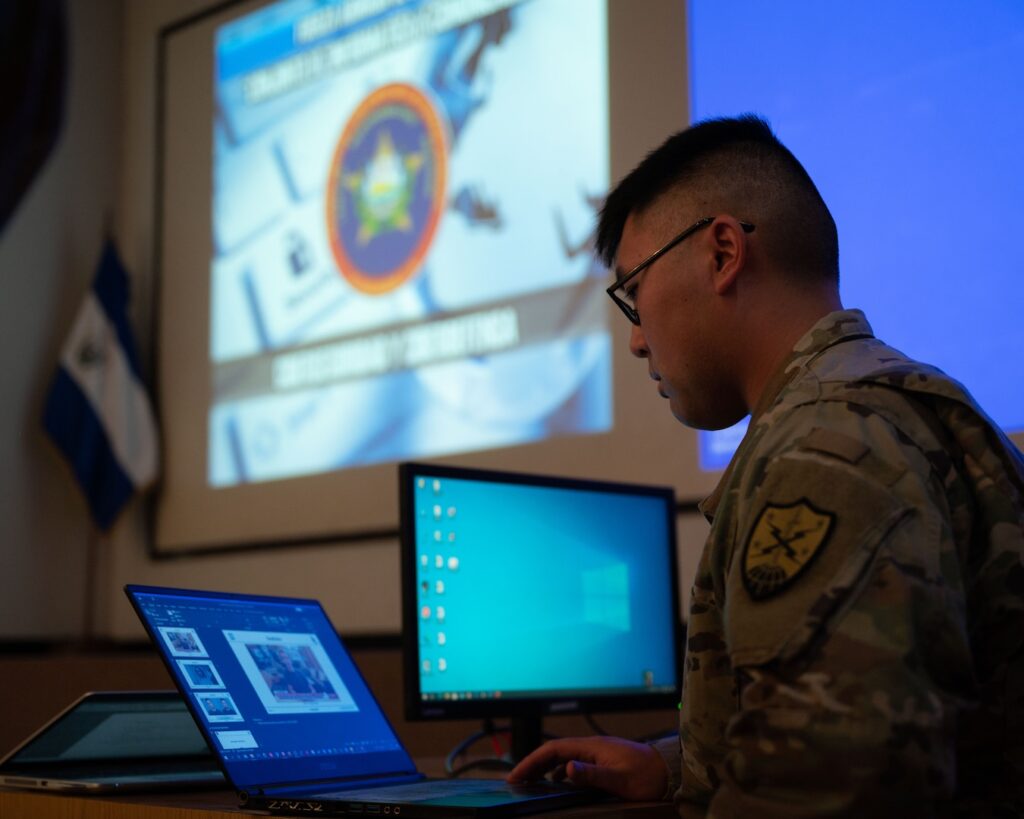This content explores the role of cybersecurity in modern conflict from the perspectives of cyber defense experts. It discusses how the nature of warfare has changed with the emergence of cyberspace as a new battlefield. The importance of cybersecurity as a critical defense strategy is emphasized, particularly in light of state-sponsored cyber warfare and the exploitation of cyber vulnerabilities by terrorist organizations. The content also highlights the human factor in cyber defense and the need for collaboration between nations and organizations. Investment in cybersecurity technologies and capabilities is deemed necessary, and the future of cybersecurity is predicted to involve advancements in artificial intelligence, machine learning, and quantum computing. The conclusion emphasizes the need for a proactive and multifaceted approach to mitigate cyber threats and ensure national security.
The Role of Cybersecurity in Modern Conflict: Perspectives from Cyber Defense Experts
Introduction
Cybersecurity has emerged as a critical factor in modern conflict, with cyberattacks becoming a prominent weapon for state-sponsored actors, terrorist organizations, and even individuals. To gain insights into this evolving landscape, we turn to the perspectives of cyber defense experts who shed light on the role of cybersecurity in contemporary warfare.
The Changing Nature of Warfare
Traditionally, warfare has been defined by physical battles fought on land, sea, or air. However, the advent of the internet and digital technology has introduced a new battlefield: cyberspace. As technology becomes more integrated into every aspect of our lives, cyberattacks pose a significant threat to national security, infrastructure, and even individuals.
Cybersecurity as a Critical Defense Strategy
Cybersecurity is no longer limited to protecting computer networks and sensitive data; it has evolved into a critical defense strategy. As nations become increasingly interconnected and reliant on technology, defending against cyber threats has become a top priority for governments and military organizations worldwide.
Nation-State Cyber Warfare
State-sponsored cyber warfare has become a prevalent method for nations to achieve their strategic objectives. Cyber espionage, sabotage, and information warfare are just a few tactics employed by nation-states. Experts emphasize that modern conflicts now encompass both physical and cyber domains, with cyberattacks being used as a force multiplier to weaken adversaries and gain an advantage without engaging in direct military confrontation.
Terrorist Organizations Exploiting Cyber Vulnerabilities
Terrorist organizations are also leveraging the power of cyberattacks to further their objectives. Cyberespionage, recruitment, and propaganda dissemination are tactics employed by these groups in the virtual realm. Cybersecurity experts warn that the growing dependence of critical infrastructures, such as energy, transportation, and healthcare, on internet-connected systems makes them potential targets for terrorist attacks.
The Human Factor in Cyber Defense
While technological advancements are crucial for combating cyber threats, cyber defense experts highlight that the human factor remains paramount. The skills and expertise of cyber defense professionals are instrumental in identifying and mitigating emerging threats. Additionally, continuous training and education are essential to stay ahead of adversaries who are constantly evolving their attack techniques.
Collaboration: The Key to Effective Cyber Defense
In an interconnected world, collaboration between nations, governments, and organizations is invaluable. Sharing information, intelligence, and best practices promotes a proactive approach to cyber defense. Experts stress the importance of international cooperation in establishing norms, legal frameworks, and deterrents to discourage malicious actors from attacking critical infrastructure.
Investing in Cybersecurity
As the role of cybersecurity in modern conflict continues to expand, experts emphasize the need for investment in cyber defense technologies and capabilities. Governments and organizations must allocate resources to develop advanced cybersecurity tools, train skilled professionals, and conduct regular assessments of vulnerabilities. Additionally, awareness campaigns and public-private partnerships can help raise awareness about cyber threats among individuals and promote responsible online behavior.
The Future of Cybersecurity
Looking ahead, cyber defense experts predict a further blurring of the lines between physical and cyber warfare. Artificial intelligence, machine learning, and quantum computing are anticipated to play significant roles in both defensive and offensive cyber operations. As technology advances and threats continue to evolve, adapting and evolving cyber defense strategies will be crucial in safeguarding national security and countering emerging threats.
Conclusion
The role of cybersecurity in modern conflict is undeniable, with cyberattacks becoming a powerful weapon for both state-sponsored actors and terrorist organizations. Cyber defense experts stress the need for prioritizing cybersecurity as a critical defense strategy, investing in advanced technologies, and fostering international collaboration. Only through a proactive and multifaceted approach can we effectively mitigate cyber threats and ensure the security of our nations and infrastructure in the digital age.
